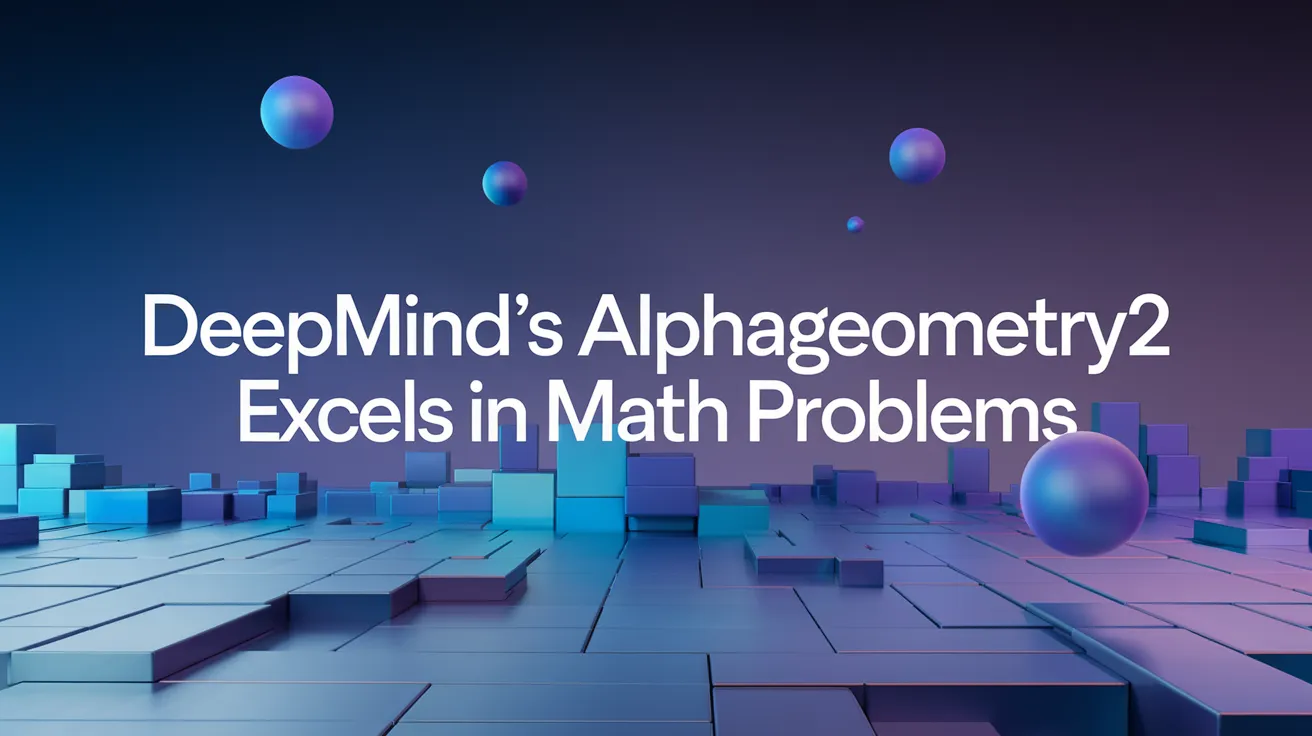DeepMind’s AlphaGeometry2 Excels in Math Problems

The advancements in artificial intelligence (AI) recently gained remarkable attention, particularly with the developments made by Google DeepMind. Last year, their AI problem solver, AlphaGeometry, made headlines by performing at the standard of silver medallists in the International Mathematical Olympiad (IMO). Now, the DeepMind team has announced that its upgraded version, AlphaGeometry2, has surpassed even the average gold medallist, marking a significant achievement in AI mathematics.
Enhanced Performance of AlphaGeometry2
AlphaGeometry2’s capabilities are highlighted in a preprint published on arXiv. Mathematician Kevin Buzzard from Imperial College London expressed optimism for the future of AI in solving mathematical problems, suggesting, “I imagine it won’t be long before computers are getting full marks on the IMO.” This reinforces the notion that AI is heading toward a point where it may rival the best human solvers.
Complexity of Geometry Problems
The International Mathematical Olympiad evaluates participants on various mathematical topics, including number theory, algebra, combinatorics, and Euclidean geometry, which is especially challenging for AI applications. Competitors must offer rigorous proofs concerning geometric statements, putting both human intellect and computational abilities to the test.
Innovative Components of AlphaGeometry2
AlphaGeometry combines specialized language models with a ‘neuro-symbolic’ system, distinguishing its approach from conventional neural networks. Whereas standard models learn from vast data, AlphaGeometry employs human-coded abstract reasoning to enhance its problem-solving abilities. This design allows the AI to articulate in formal mathematical language, enabling it to ensure logical rigour and minimize disjointed outputs often seen in conventional AI chatbots.
Improvements and New Features
Key improvements in AlphaGeometry2 include the integration of Google’s advanced large language model, Gemini, along with enhancements allowing it to manipulate geometric entities for problem-solving effectively. Notably, it demonstrated an impressive ability, solving 84% of the geometry problems presented in IMOs over the last 25 years, compared to just 54% by its predecessor, AlphaGeometry.
Future Directions for AlphaGeometry
The research authors at DeepMind anticipate further enhancements for AlphaGeometry, focusing on more complex mathematical challenges, such as dealing with inequalities and non-linear equations, essential for comprehensive geometry problem-solving. This continued evolution not only showcases the potential for AI in academia but also raises questions about the coexistence of human intelligence and advanced computational systems in solving intricate problems.